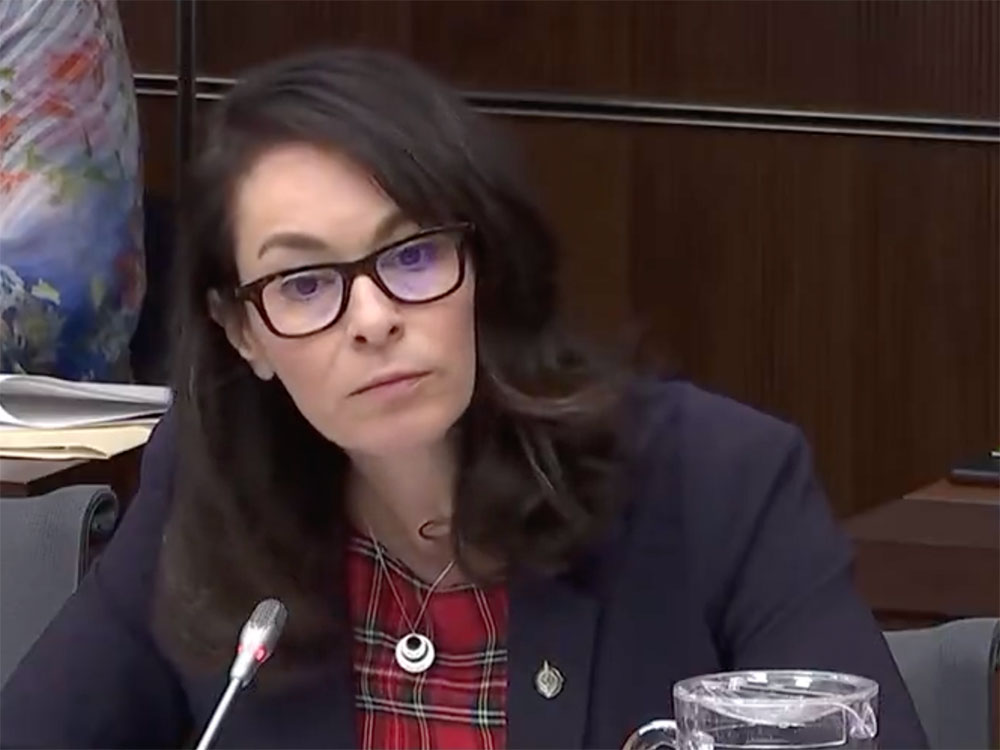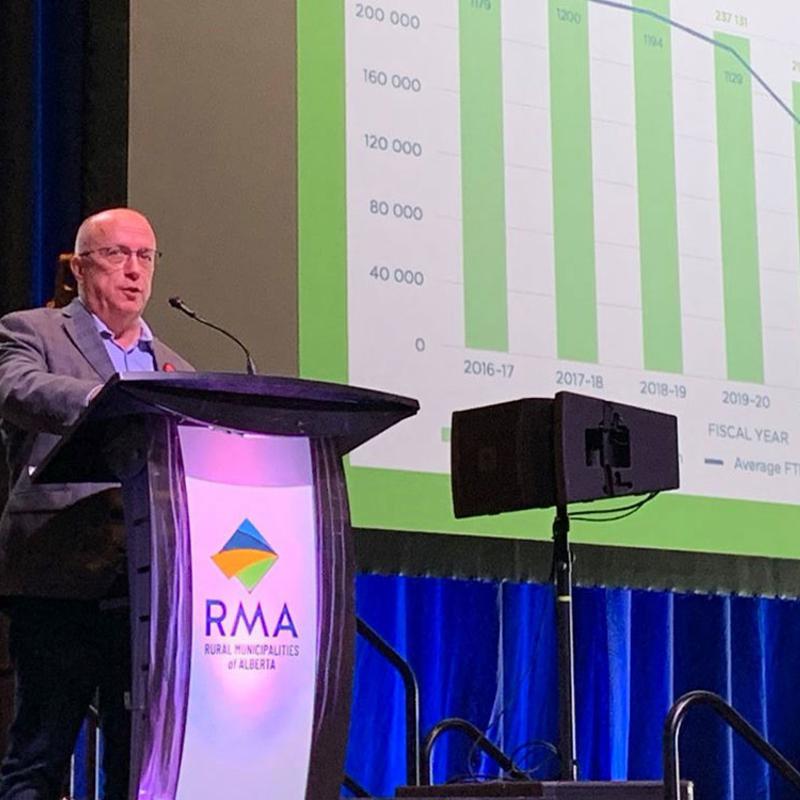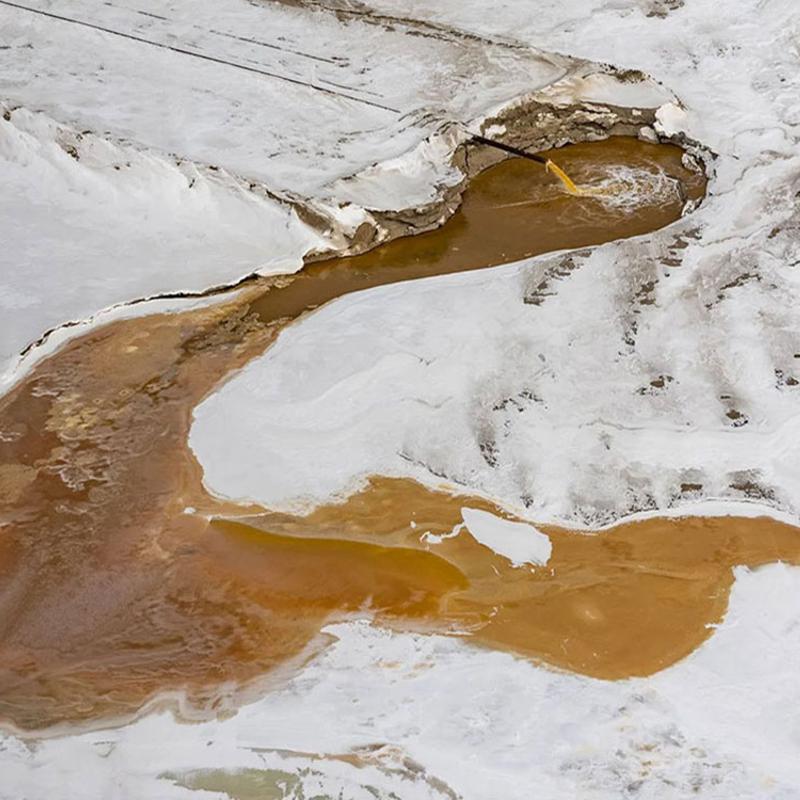Alberta Energy Regulator refuses to answer MP’s questions on what the UCP government knew, and when it knew it.
David Climenhaga
25 Apr 2023
Alberta Politics
David J. Climenhaga is an award-winning journalist, author, post-secondary teacher, poet and trade union communicator. He blogs at AlbertaPolitics.ca Follow him on Twitter at @djclimenhaga.
 Edmonton MP Heather McPherson said AER head Laurie Pushor showed contempt for Parliament and ‘contempt for Canadians, particularly the impacted First Nations and Métis communities.’ Image from committee hearing video.
Edmonton MP Heather McPherson said AER head Laurie Pushor showed contempt for Parliament and ‘contempt for Canadians, particularly the impacted First Nations and Métis communities.’ Image from committee hearing video.
Anyone who watched the head of the Alberta Energy Regulator refusing to answer questions Monday during the Standing Committee on Environment and Sustainable Development’s hearings into Imperial Oil’s Kearl site tailings pond spill last May has to wonder what the actual purpose of the provincial agency is.
But don’t worry. The AER wants you to know it’s on the job — closely examining Hollywood’s output to ensure no impressionable moviegoer is influenced to blow up critical infrastructure.
As we’ve said before and will probably say again in commentaries about politics in Alberta, you just can’t make this stuff up.
Alberta Energy Regulator CEO Laurie Pushor repeatedly refused to answer Edmonton Strathcona MP Heather McPherson’s pointed questions Monday about when the so-called “regulator” informed Alberta’s United Conservative Party government of the spill.
The federal parliamentary committee’s hearing was called to discover why continuing seepage from the site wasn’t reported to Environment Canada or nearby First Nations communities for nine months, until a 5.3-million-litre spill became known in February.
“By failing to answer my questions, Pushor has shown extreme contempt for Parliament,” McPherson said in a statement.
“More importantly,” the NDP MP continued, “he has shown contempt for Canadians, particularly the impacted First Nations and Métis communities.”
She said the federal NDP will raise a point of privilege in the House of Commons “to compel the AER to provide clarity on when Danielle Smith and the UCP knew about the ongoing seepage and spill.”
The same day, however, the AER issued a statement of its own, assailing American film director Daniel Goldhaber’s How To Blow Up a Pipeline, which the Guardian’s reviewer dubbed “a propulsive eco-thriller.”
The 2022 film may make it clear, as the Guardian noted, that “these characters are extremists whose actions will have potentially devastating consequences,” but that’s not good enough for the AER.
“The release of this movie should not be taken lightly,” huffed the regulator in a statement published Monday. “Provincial and federal agencies across North America are preparing for scenarios where activists, inspired by the film, may turn to sabotage to get their message across, putting themselves, their communities and industry in danger.”
Plus, presumably, since the boss was on the stand facing a question he’d really prefer not to answer, they’d rather you got caught up in a saga about fictional terrorists.
Meanwhile, in Ottawa, Pushor was dodging and weaving to avoid McPherson’s questions, arguing there was no need for him to answer her simple question because the AER’s board of directors is conducting a review and it will be made public in due course, in the fullness of time, one of these days.

On the Hot Seat: Alberta Energy Regulator CEO Laurie Pushor
David J. Climenhaga is an award-winning journalist, author, post-secondary teacher, poet and trade union communicator. He blogs at AlbertaPolitics.ca Follow him on Twitter at @djclimenhaga.
 Edmonton MP Heather McPherson said AER head Laurie Pushor showed contempt for Parliament and ‘contempt for Canadians, particularly the impacted First Nations and Métis communities.’ Image from committee hearing video.
Edmonton MP Heather McPherson said AER head Laurie Pushor showed contempt for Parliament and ‘contempt for Canadians, particularly the impacted First Nations and Métis communities.’ Image from committee hearing video.Anyone who watched the head of the Alberta Energy Regulator refusing to answer questions Monday during the Standing Committee on Environment and Sustainable Development’s hearings into Imperial Oil’s Kearl site tailings pond spill last May has to wonder what the actual purpose of the provincial agency is.
But don’t worry. The AER wants you to know it’s on the job — closely examining Hollywood’s output to ensure no impressionable moviegoer is influenced to blow up critical infrastructure.
As we’ve said before and will probably say again in commentaries about politics in Alberta, you just can’t make this stuff up.
Alberta Energy Regulator CEO Laurie Pushor repeatedly refused to answer Edmonton Strathcona MP Heather McPherson’s pointed questions Monday about when the so-called “regulator” informed Alberta’s United Conservative Party government of the spill.
The federal parliamentary committee’s hearing was called to discover why continuing seepage from the site wasn’t reported to Environment Canada or nearby First Nations communities for nine months, until a 5.3-million-litre spill became known in February.
“By failing to answer my questions, Pushor has shown extreme contempt for Parliament,” McPherson said in a statement.
“More importantly,” the NDP MP continued, “he has shown contempt for Canadians, particularly the impacted First Nations and Métis communities.”
She said the federal NDP will raise a point of privilege in the House of Commons “to compel the AER to provide clarity on when Danielle Smith and the UCP knew about the ongoing seepage and spill.”
The same day, however, the AER issued a statement of its own, assailing American film director Daniel Goldhaber’s How To Blow Up a Pipeline, which the Guardian’s reviewer dubbed “a propulsive eco-thriller.”
The 2022 film may make it clear, as the Guardian noted, that “these characters are extremists whose actions will have potentially devastating consequences,” but that’s not good enough for the AER.
“The release of this movie should not be taken lightly,” huffed the regulator in a statement published Monday. “Provincial and federal agencies across North America are preparing for scenarios where activists, inspired by the film, may turn to sabotage to get their message across, putting themselves, their communities and industry in danger.”
Plus, presumably, since the boss was on the stand facing a question he’d really prefer not to answer, they’d rather you got caught up in a saga about fictional terrorists.
Meanwhile, in Ottawa, Pushor was dodging and weaving to avoid McPherson’s questions, arguing there was no need for him to answer her simple question because the AER’s board of directors is conducting a review and it will be made public in due course, in the fullness of time, one of these days.

On the Hot Seat: Alberta Energy Regulator CEO Laurie Pushor
READ MORE
McPherson: Can you tell me, when did you inform any provincial government representative of the seepage that you first learned of in May 2022?
Pushor: Me personally?
McPherson: The AER. When was any representative from the provincial government notified?
Pushor: Well, you know, we do have a review that’s being conducted by our board of directors and so I think it would be best to leave that...
McPherson: So you can’t tell us that date that you let the provincial government know that this was happening?
Pushor: I think it’s best that we let that review be a full independent review. And all of those answers and all of those questions will be addressed in that review, and the board has made a commitment that those findings will be released publicly.
McPherson: Mr. Pushor, you’re in front of a parliamentary committee. I would ask that you tell us the date that the provincial government knew when this spill was happening. The date that any representative from the Province of Alberta knew that this spill was happening.
Pushor: So we have extensive relationships at the field level...
McPherson: That is not a date Mr. Pushor! I would like to know the date the provincial government knew that this was happening in Indigenous communities in northern Alberta.
Pushor: So what I’m saying is that that’s part of the review that the board will do and we’ll find out all of the places that...
You can watch the rest of the exchange online between McPherson and Pushor, which was posted by the MP’s office on social media.
In her statement, McPherson explained that she was seeking “what information the AER provided to the government that led to Premier Danielle Smith’s claim on March 6 that there was no environmental impact from the ongoing seepage and the spill.”
“It was a very good question and Mr. Pushor had no reason not to answer it,” tweeted University of Calgary environmental law professor Martin Z. Olszynski Monday afternoon. “Certainly, the so-called ‘independent third-party review’ ordered by the AER board (and currently out for tender!) in no way precluded him from answering.”
A thorough report on the backstory of the parliamentary committee’s hearing, for which Pushor was required to testify under oath at McPherson’s insistence, was published yesterday by the Canadian Press.

Ottawa Has Questions About that Oilsands Toxic Waste Spill
McPherson: Can you tell me, when did you inform any provincial government representative of the seepage that you first learned of in May 2022?
Pushor: Me personally?
McPherson: The AER. When was any representative from the provincial government notified?
Pushor: Well, you know, we do have a review that’s being conducted by our board of directors and so I think it would be best to leave that...
McPherson: So you can’t tell us that date that you let the provincial government know that this was happening?
Pushor: I think it’s best that we let that review be a full independent review. And all of those answers and all of those questions will be addressed in that review, and the board has made a commitment that those findings will be released publicly.
McPherson: Mr. Pushor, you’re in front of a parliamentary committee. I would ask that you tell us the date that the provincial government knew when this spill was happening. The date that any representative from the Province of Alberta knew that this spill was happening.
Pushor: So we have extensive relationships at the field level...
McPherson: That is not a date Mr. Pushor! I would like to know the date the provincial government knew that this was happening in Indigenous communities in northern Alberta.
Pushor: So what I’m saying is that that’s part of the review that the board will do and we’ll find out all of the places that...
You can watch the rest of the exchange online between McPherson and Pushor, which was posted by the MP’s office on social media.
In her statement, McPherson explained that she was seeking “what information the AER provided to the government that led to Premier Danielle Smith’s claim on March 6 that there was no environmental impact from the ongoing seepage and the spill.”
“It was a very good question and Mr. Pushor had no reason not to answer it,” tweeted University of Calgary environmental law professor Martin Z. Olszynski Monday afternoon. “Certainly, the so-called ‘independent third-party review’ ordered by the AER board (and currently out for tender!) in no way precluded him from answering.”
A thorough report on the backstory of the parliamentary committee’s hearing, for which Pushor was required to testify under oath at McPherson’s insistence, was published yesterday by the Canadian Press.

Ottawa Has Questions About that Oilsands Toxic Waste Spill
READ MORE
As for the AER’s statement on a the movie, it sternly advised that “operators and licensees should increase their level of awareness, review their security and emergency response protocols, and monitor this evolving situation.”
“Furthermore,” it added, “we recommend that operators conduct enhanced surveillance and monitoring of surface pipelines and verify that leak detection systems and emergency shutdown valves are functioning properly.”
Well, you can’t fault that advice, I guess.
As for those moviemakers, they’ve already seen what happened to Bigfoot Family. The makers of How To Blow Up a Pipeline are now on notice that they can be next.
We Albertans may not be able to be confident our provincial officials are working very hard to prevent leaks and spills of toxic materials, but at least we know that when the going gets tough, the tough review movies.
As for the AER’s statement on a the movie, it sternly advised that “operators and licensees should increase their level of awareness, review their security and emergency response protocols, and monitor this evolving situation.”
“Furthermore,” it added, “we recommend that operators conduct enhanced surveillance and monitoring of surface pipelines and verify that leak detection systems and emergency shutdown valves are functioning properly.”
Well, you can’t fault that advice, I guess.
As for those moviemakers, they’ve already seen what happened to Bigfoot Family. The makers of How To Blow Up a Pipeline are now on notice that they can be next.
We Albertans may not be able to be confident our provincial officials are working very hard to prevent leaks and spills of toxic materials, but at least we know that when the going gets tough, the tough review movies.

No comments:
Post a Comment